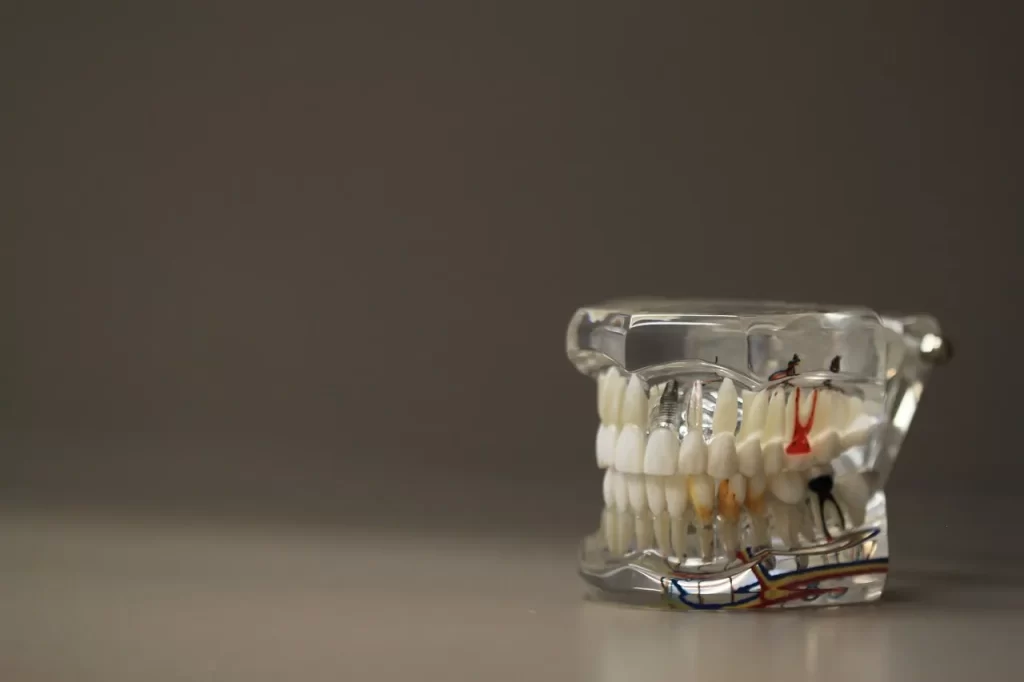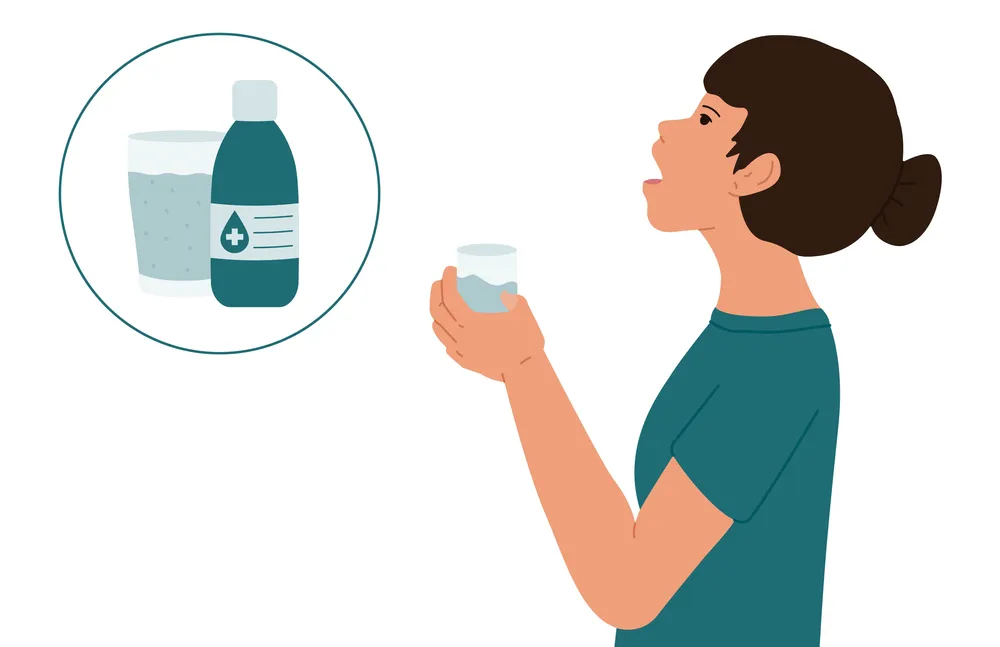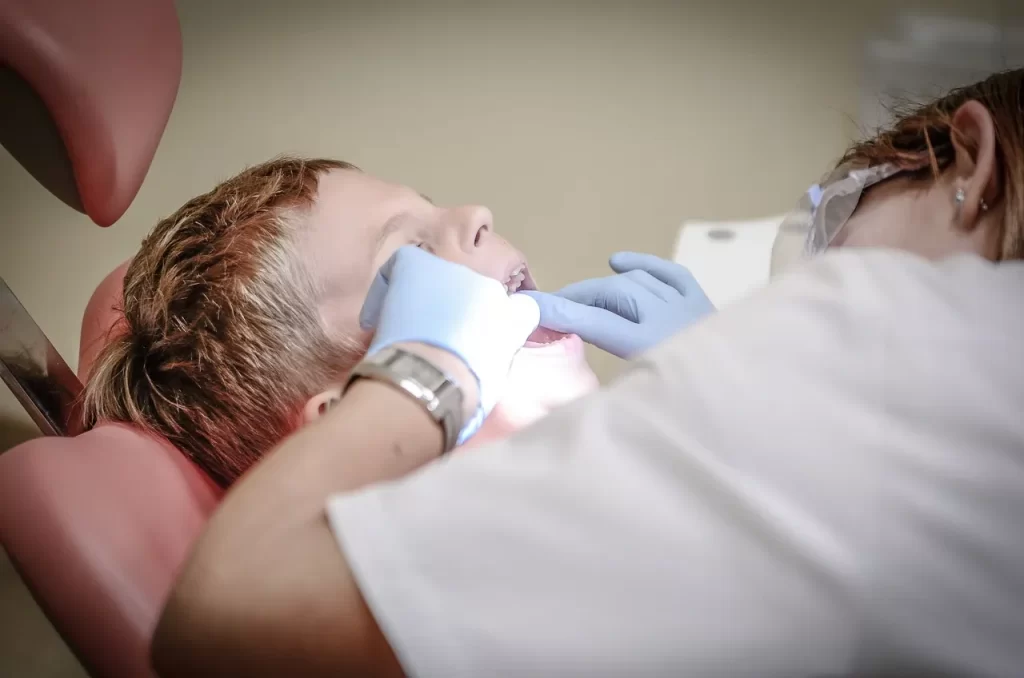
Imagine you’re enjoying your favorite snack when suddenly you feel a sharp pain in your tooth. You try to ignore it, but the pain only gets worse. You finally make an appointment with your dentist and find out you need a root canal.
So, why might you need a root canal and how to avoid a root canal? The pulp inside your tooth can become infected or damaged due to deep decay, a cracked or broken tooth, or trauma to the tooth. If left untreated, the infection can spread to the surrounding tissues, leading to pain, swelling, and even tooth loss.
Proper oral hygiene and regular dental checkups can reduce your risk of needing a root canal. However, if you experience tooth pain or other symptoms, it’s essential to see your dentist promptly to prevent more extensive treatment.
Learn how to avoid a root canal.
Root canals are a standard dental procedure used to save teeth that are damaged or infected. The method involves removing the infected or damaged pulp from the inside of the tooth, cleaning and shaping the root canals, and then filling and sealing the space to prevent further infection.

Here are some tips for avoiding a root canal:
Practice good oral hygiene.
To prevent cavities and gum disease, you should brush your teeth twice a day and floss to get rid of plaque and bacteria.
Consider fluoride treatments
Your teeth can become stronger and more resistant to cavities with fluoride, a mineral that helps protect them. Your dentist may recommend fluoride treatments, like fluoride toothpaste and mouthwashes, to help protect your teeth from decay and reduce the risk of needing a root canal.
Wear a mouthguard
If you play contact sports or grind your teeth at night, wearing a mouthguard can help protect your teeth from injury. Mouthguards can help absorb and distribute the impact force, reducing the risk of tooth damage that may require a root canal.
Avoid hard and sticky foods.
Chewing hard or sticky foods can cause your teeth to crack or become damaged, leading to infections and the need for a root canal. Avoid chewing on ice, hard candies, and other hard or sticky foods to protect your teeth.
Address dental issues promptly, and don’t leave them untreated.
See your dentist immediately if you experience tooth pain, sensitivity, or swelling. Prompt treatment can help prevent the need for more extensive procedures such as root canals.
Eat a healthy diet and avoid sugary foods.
A diet high in sugar and carbohydrates can increase your risk of cavities and tooth decay, leading to infections and the need for a root canal. Eating a diet rich in fruits, vegetables, and lean proteins can help keep your teeth and gums healthy.
Drink plenty of water.
Water can help wash away food particles and bacteria that cause tooth decay and gum disease. It can also help keep your mouth moist, reducing the risk of dry mouth, which can increase the risk of tooth decay.

Don’t use your teeth as tools.
Using your teeth to open packages or bite your nails can cause them to crack or damage, leading to infections and the need for a root canal. Use scissors or other tools to open packages, and try to break the habit of biting your nails.
Quit smoking
Smoking can increase your risk of gum disease, leading to infections and the need for a root canal. Quitting smoking can help improve your overall health and reduce your risk of dental problems.
Get regular dental checkups.
Regular dental checkups are essential for maintaining good oral health and catching any dental issues early. During a checkup, your dentist can examine your teeth and gums for signs of decay, gum disease, and other problems.
If any issues are detected, your dentist can recommend appropriate treatments to help prevent the need for a root canal.

FAQs
Conclusion
While root canals may not be the most pleasant dental procedure, they are a common and effective way to save damaged or infected teeth. By practicing good oral hygiene, protecting your teeth from injury, and addressing any dental issues promptly, you can reduce your risk of needing a root canal. However, if you experience tooth pain or other symptoms, don’t hesitate to see your dentist. Early treatment can help prevent the need for more extensive procedures and keep your smile healthy and pain-free.

